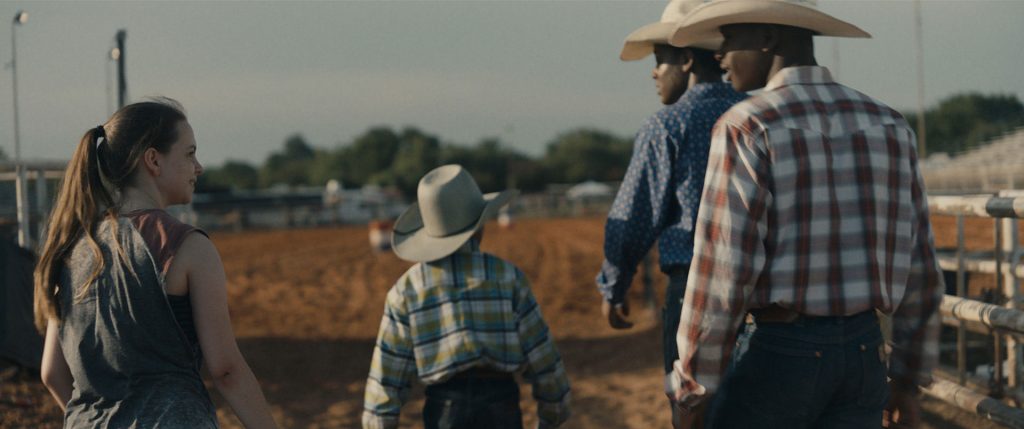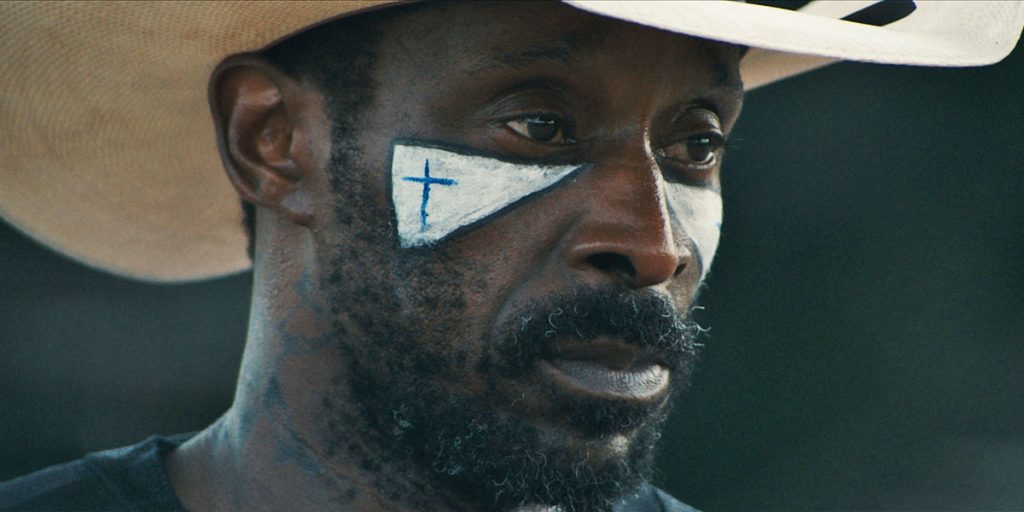Bull is an effectively modest slice of life drama about a former professional bull rider, played by an excellent Rob Morgan in a rare leading role for the character actor.
One of the challenges in writing about film is in determining how to convey to a reader the quality of a movie that is largely about tone and emotion. Bull is largely devoid of big moments – it is quiet and contemplative. Quiet and contemplative, one can imagine, is a far harder subject for writing than most plots. The film feels naturalistic, at times bordering on documentary. The characters of this story are not the usual subject of a camera, and the rhythm of the film seems to echo the laconic flow of its subjects’ lives.
It would, of course, be the laziest option just to describe the plot. A reader could easily see on IMDb that Bull is about a young girl (Amber Havard) teetering on the edge of criminality who is tasked with working for a neighbor (Just Mercy and Mudbound’s Rob Morgan) after breaking into his home. The reader would learn that the film’s title is – in part – inspired by the neighbor’s profession: he is a former professional bull rider who now works at wrangling the animals after a rider is tossed off. He medicates liberally with alcohol and codeine to get through the day.
A better option for the writer might be to focus on the work of the actors. The two lead performances here are impressive and naturalistic, far too subtle to receive awards consideration from the major awards groups. There are no real big moments of acting and most conflicts are resolved less with explosion than with silence and introspection. The simple joy of Bull is watching Rob Morgan and Amber Havard share the screen, but that is not something easy to convey. Another angle could be to discuss the fact that many readers would not be surprised to hear Morgan is excellent here – he usually is – but would not expect that, for once, the wonderful character actor has a leading role here. Readers may, too, find interest in the fact that young Amber Havard has never acted professionally before yet carries a complicated, difficult role here.
One good way to “crack” a review can be to focus on one scene, but even Bull’s best scenes are almost too subtle to adequately describe. In one moment, Havard offers to give Morgan a painkiller shot after a bull riding show. She knows how to give a shot because of her grandmother’s insulin, she explains. Morgan grunts before handing her the needle and affectionately growls “get the fuck outta here” at her brewing sense of satisfaction. The scene is smart, tender, and affecting – it also has almost no dialogue and barely any plot. It just feels like a real moment between two flawed, damaged people.

One last way to structure a review is to focus on a glaring flaw or problem with the film. Bull, like nearly every film, has some flaws. One plot arc – the most conventional tension the film exhibits – sees Havard’s character tempted by the appeal of dealing drugs to the various bull riders who are always seeking an edge. The plot feels almost like it addresses a producer’s note that “not enough happens!” and never quite rings true to the rest of the film. It feels like a high stakes distraction from the low stakes emotional drama we have come to appreciate.
And, of course, each review needs a wrap-up, a summary of the film’s quality or a parting comment on what the film means. Bull comes alive in its exploration of the mundane details. It sees value in the proper method of rubbing a robe to warm your glove hand before riding a bull. It finds comfort in a long quiet ride between two characters in a pickup truck, or mundane tasks like filling the water coolers before a rodeo practice. All told, the film provides a window into the lives of two characters you would not usually see at the theater, as I hope I have provided a little window into how reviewers go about writing-up a film.
Bull is now available to watch on Digital.

